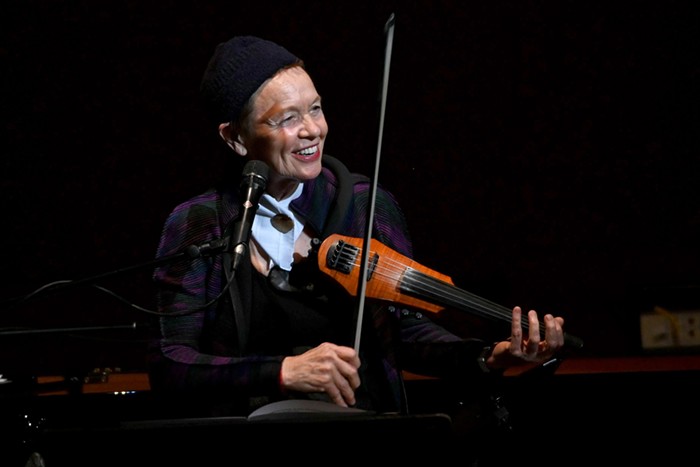Portland singer/songwriter Faustina Masigat just released her self-titled debut LP through Mama Bird Recording Co., the local record label that’s also home to up-and-coming musicians like Haley Heynderickx and Courtney Marie Andrews who’ve been getting attention beyond the Pacific Northwest. Masigat has, too—in a recent review, the Washington Post called her “a singular voice.”
But her new album was the product of some darker days. When she wrote it, Masigat remembers feeling like a failure—anchorless, lost, and the kind of sad that isn’t easily escaped. Across 11 tracks, she sings about being broke and heartbroken (“Poverty”), reflects on waning love that’s “like a cold bath” (“Intervention”), and eulogizes her old life (“I Was His”). They’re ballads from rock bottom, that impossible state of mind where every direction seems like a dead-end.
“If you’re struggling with a hard situation or if you have mental illness, it tricks you into thinking that you’ve always felt that way and you’ll never feel better,” Masigat says. “[But] if I don’t process this, I’m going to be stuck in this place indefinitely.”
Throughout the record, her voice carries the weight of disappointment, shame, and psychic pain, quieting to a hush on “Done Thinking About It” as she sings, “Lying to my family/Said I’m okay,” and swelling with resolve as she likens memories to sea glass illuminated by sunshine on the upbeat standout “Colored Glass.” It’s powerful and tender music, but instead of sounding overly gloomy, it’s a soundtrack for Masigat’s catharsis.
“Whether it was psychosomatic or what, I actually had some dysphonia right when the record was completed, so I actually lost the ability to sing for a little bit,” she says. “My body just let go of so much, and it’s all on the record.”
Though her debut features an ode to Willie Nelson, Masigat says her holy trinity of musical inspirations includes folksinger Gillian Welch, R&B star Aaliyah, and the iconic Costa Rican singer/guitarist Chavela Vargas. Masigat says she’s “completely absorbed by the universe [Vargas’s voice] creates. She was very out about her sexuality—she was a lesbian who would sing these traditional Spanish-language ballads, but she wouldn’t switch the pronouns, so she’d make it very clear that she was singing to a woman.”
Masigat’s influences clearly span several different genres—Americana, folk, R&B, and traditional Mexican ranchera—but her debut is undeniably country-tinged. (“That style made it easier for me to tell the stories I wanted to tell,” she explains.) The songs on Faustina Masigat push her hushed vocals to the front of the mix—there’s no bass and very minimal percussion, with twangy fingerpicked acoustic guitar, lush melancholic strings, piano, and magnificent swoops of pedal steel (courtesy of the Minus 5’s Tucker Jackson) that accent wistful melodies like jet contrails smeared across the sky at sunset.
“The pedal steel as an instrument is kind of like the banjo, in that it’s really easy for the song to suddenly be a banjo song, or to suddenly be a pedal steel song,” she says. “But Tucker is really special—he almost performs like a jazz player.”
Recording her debut was a transformative process for Masigat, who thankfully emerged from her bout with dysphonia unscathed: “I listen to the record and it just sounds so vulnerable,” she says. “It almost sounds like a different person to me now—the wave crested.”


















